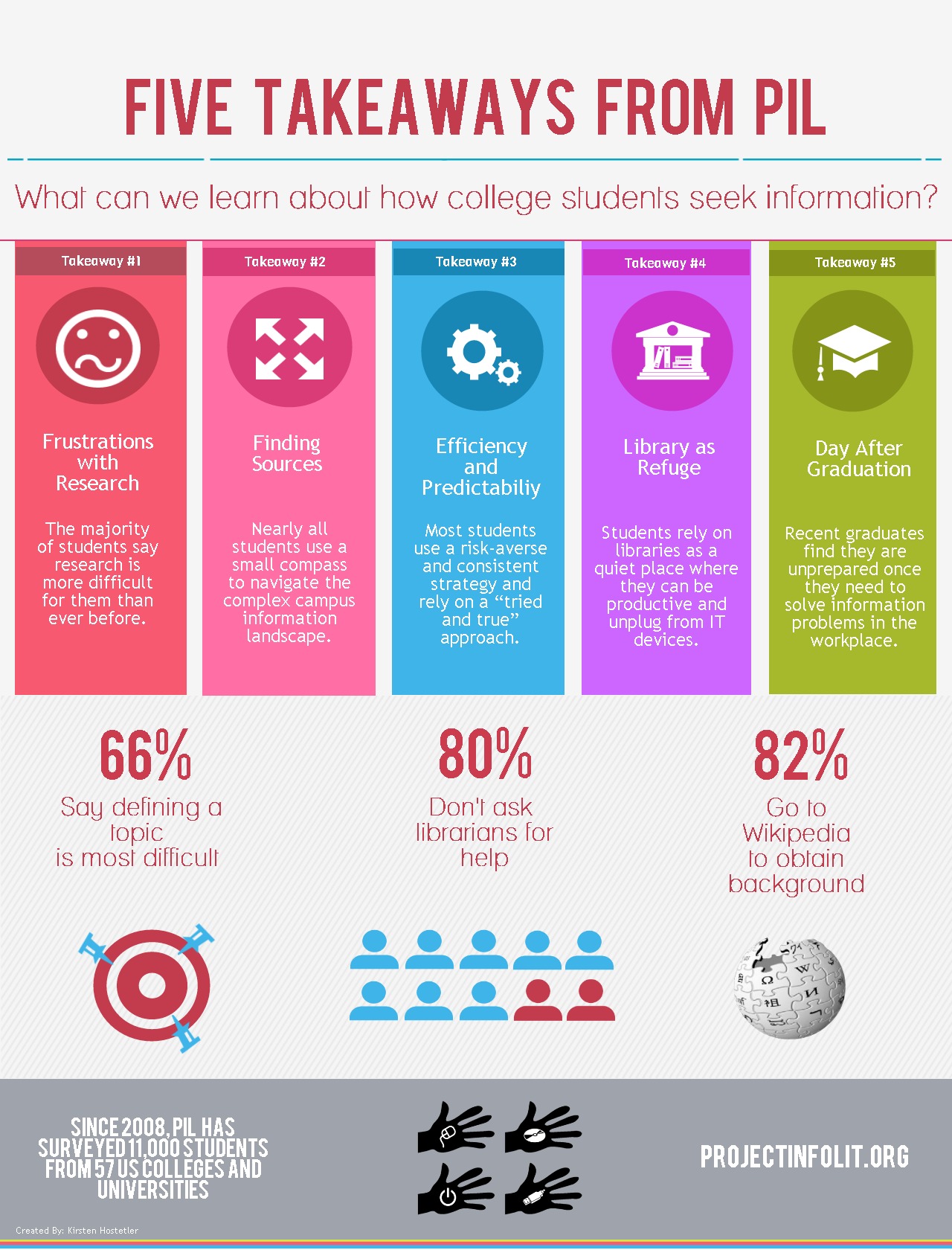First-year students and their information needs are commonly studied in the information and library science field. The information below provides additional details on students' research habits. While some of the studies are 8+ years old, and technology changes quickly, the findings should still provide insight into how your students may interact with information and research.
Essays and Reflections on Student Information Use
-
Information Literacy for MortalsFrom the essay's heading: "In the academic imagination, depth and attention are the highest of virtues. But in pushing students to apply high-attention strategies to all incoming information, we risk creating a new and dangerous shallowness."
While the essay is very readable, the most salient information regarding students' information use is under the heading "Information Literacy for Mortals." -
Information Literacy in the Age of AlgorithmsFrom the abstract: "This report presents findings about how college students conceptualize the ever-changing online information landscape, and navigate volatile and popular platforms that increasingly employ algorithms to shape and filter content."
While the entire report runs 55 pages, a 3-page executive summary is also available at the link above. -
Learning the Ropes: How Freshmen Conduct Course Research Once They Enter CollegeFrom the abstract: "This paper presents findings about the challenges today’s college freshmen face, and the information-seeking strategies they develop, use, and adapt as they make the transition from high school to college and begin to complete college-level research assignments."
While this study was published in 2012, the information it offers, in combination with the other information included on this guide, helps deepen our understanding of student information use in the first year. -
Project Information Literacy: What Can Be Learned about the Information-Seeking Behavior of Today’s College Students?From the abstract: "Project Information Literacy (PIL) has conducted six studies since 2008 to investigate what it is like to be a college student in the digital age. Survey and interview data has been collected from more than 11,000 US college students to investigate how they find, evaluate, and use information for their course work and for addressing issues that arise in their everyday lives. This paper highlights findings from these studies."
Student Research Habits - Research from Project Information Literacy (PIL)



